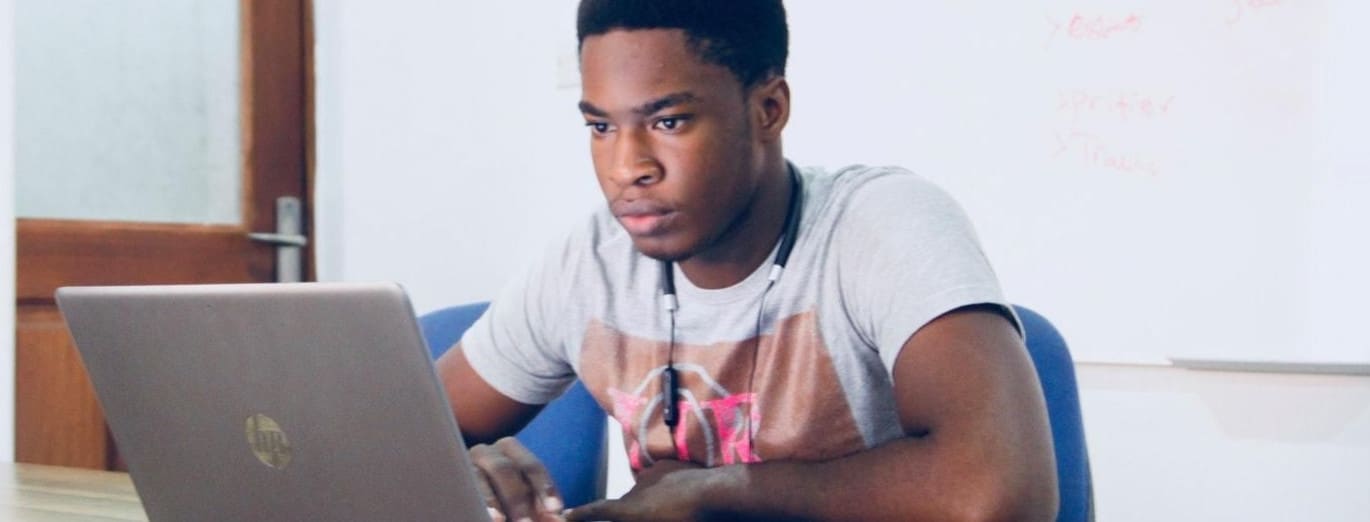COVID-19: Higher Education Opportunities in a Changing World
COVID-19 has been accompanied by more than its fair share of obstacles for the higher education sector. However, there are opportunities, too -- for schools and students alike. Here’s a closer look at the impact of the pandemic on higher education, along with how students can position themselves for success amidst the ongoing changes and uncertainty ahead.
- Education

Navigating the shift to remote learning platforms
COVID-19 required a rapid response from higher education institutions with many traditional universities being forced to rapidly switch from classroom to online delivery modes. As universities around the globe shuttered their doors and went virtual, many brick-and-mortar schools were unprepared to pivot. In the United States, for example, 70 percent of faculty members in the US had never taught online classes before.
The takeaway is there has been a learning curve for schools for which online learning was not the norm, and many -- using temporary stopgaps instead of long-term solutions -- are struggling to deliver satisfying learning experiences for their students. One business school professor told The New York Times, “What we are talking about when we talk about online education is using digital technologies to transform the learning experience. What is happening now is we had eight days to put everything we do in class onto Zoom.”
Meanwhile, online institutions have already surmounted these challenges. Not only that, but schools that specialize in remote learning can inherently deliver on their promise, while residential colleges and universities could to some extent still be finding their way for a while yet.
Still, there’s no denying that the on-campus experience has much appeal for many students. In this new landscape, hybrid programs -- which offer the choice of combining online learning and the on-campus student experience -- seem set to become especially appealing to a greater number of students.

The role of education in a changing world
In addition to affecting higher education, COVID-19 is also having a profound impact on the economy and jobs. With many companies going out of business or being in jeopardy, employees are finding themselves either out of work or at risk of losing their jobs. More people will be looking to universities for the training they need to improve their lives and their job prospects. Others will be looking to future-proof themselves to thrive as members of the post-COVID workforce.
A recent report from CNBC highlights the critical role education can play in during this precarious time in the economy. Taking the time to consider now what knowledge, skills and experience you can gain now will help give you an inside edge when things recover. “Increasing your knowledge increases your value to potential employers. Moreover, it demonstrates your work ethic and ability to deal with adversity,” argues Douglas A. Boneparth, president of Bone Fide Wealth and co-author of The Millennial MoneyFix.
Shark Tank investor Daymond John agrees that taking online classes is one of the best ways to make the most of the current situation. “You’re educating yourself and getting as much information as you can to be a better person,” he insists. “Just make sure you keep investing yourself because true entrepreneurs know that change will always happen.”
Additionally, people returning to higher education, as well as new students, may have changing priorities and career aspirations. Historically, people switch to career-oriented degrees during economic downturns, according to research. Majors like business, economics, finance and engineering, as well as healthcare jobs, may be increasingly preferred as they may open the door to more stable jobs. Furthermore, less quantifiable factors may also impact how people think about their career aspirations and how to reach them in times of crisis. For example, students may become inspired to pursue careers that are currently making a difference in the fight against COVID-19.
And then there’s the fact that the economic downturn may leave people with fewer financial resources. They may also want or need to stay closer to home. Again, online colleges offer a best-of-both-worlds solution: access to the knowledge and skills conferred by universities via the optimal format of each student’s choice.
With money a growing concern, the importance of value in higher education cannot be overstated. Online courses can be delivered at lower costs without sacrificing many of the benefits. “By freeing resources from courses that can be commoditized, colleges would have more resources to commit to research-based teaching, personalized problem solving, and mentorship. The students would also have more resources at their disposal, too, because they wouldn’t have to reside and devote four full years at campuses. They would take commoditized courses online at their convenience and at much cheaper cost,” Harvard Business Review proposes.
As more employers accept remote work is not only here to stay but may also bring productivity benefits, they also seem set to see new value in seeking out candidates with experience with remote studies and virtual platforms.
Lastly, it is important to acknowledge the need to study at home necessitated by COVID-19 has had some unexpected positives. Top of the list is a drop in carbon output. Even when the current crisis resolves, climate change will remain. With experts calling for this topic to remain at the forefront of people’s minds and public policy, remote learning supports this imperative by reducing the carbon footprint of higher education.
A flexible college option
With the higher education system in flux, many students are looking for new ways to realize their college degree goals. The University of the Highlands and Islands (UHI) is a leader in the online learning and blended learning field. Scotland’s newest university, UHI uses innovative technology and cutting-edge pedagogy to provide 21st-century learning opportunities to students.
UHI is the embodiment of “something for everyone.” In addition to offering a huge range of online courses suitable for international delivery in students’ home countries, UHI comprises 13 main colleges and research centers -- each with its own distinctive character -- and 70 local learning centers, meaning students also have the option of learning on-site.
UHI is strongly embedded in the remote communities of the beautiful Highlands and Islands region. “We have students all over Shetland, on the islands,” says Stuart Fitzsimmons, an aquaculture trainer at The NAFC Marine Centre UHI. “Remote areas that have trouble getting to the college, or on shift patterns, have asked for more flexible learning and it’s then developing our course material to fit around that. We’re filling an educational role and we’re filling a research role. It’s just brilliant; the world is our oyster at the moment.”
At the same time, it offers many undergraduate and postgraduate programs which you can study from your own country via International Online delivery and programs suitable for delivery to International On-campus.
Just how massive is UHI’s reach? Not only do all of its learning sites come together to make it the seventh-largest university estate in Scotland, it is also the biggest single user of video-conference technology in the UK and Europe. UHI’s Virtual Learning Environment (VLE) boasts many advantages, including access to world-class technology; access to an extensive multi-regional online library service; 24-hour technical support; and the ability to connect with a dynamic network of UHI community members.
In recognition of the fact that all students aren’t ready to matriculate at the same time -- especially at this unique time in history -- UHI also offers a January start, opening the door for those who aren’t ready to begin in the fall.
We can think of no better testament to UHI’s benefits than from students themselves. Take Katrina Paton, for example, who completed both a full-time BA in Child and Youth Studies and a Postgraduate Certificate in Restorative Practices at UHI. “I would definitely recommend it; online learning has opened a door for me that was previously closed,” she says. “I’ve also been able to develop IT skills and knowledge that I wouldn’t have got by studying a face-to-face course. I’ve made new friends from all over the Highlands and Islands and feel a real affinity to the area because of it!”
In the midst of the COVID-19 crisis, meanwhile, UHI has been able to maintain continuity -- and a level of teaching -- while other universities have been unable to do so.
While we are in uncharted times, at least one thing is for certain: the world that emerges will be forever changed. Students who take all of the factors into consideration when making their college choices -- including recognizing the unique benefits of online and virtual learning -- will emerge strong and ready for the post-pandemic world.
Article written in association with the University of the Highlands and Islands.
Find your perfect program
Use our search to find and compare programs from universities all over the world!
University of the Highlands and Islands
Joanna Hughes
Author
Joanna worked in higher education administration for many years at a leading research institution before becoming a full-time freelance writer. She lives in the beautiful White Mountains region of New Hampshire with her family.
Find a program in these categories


